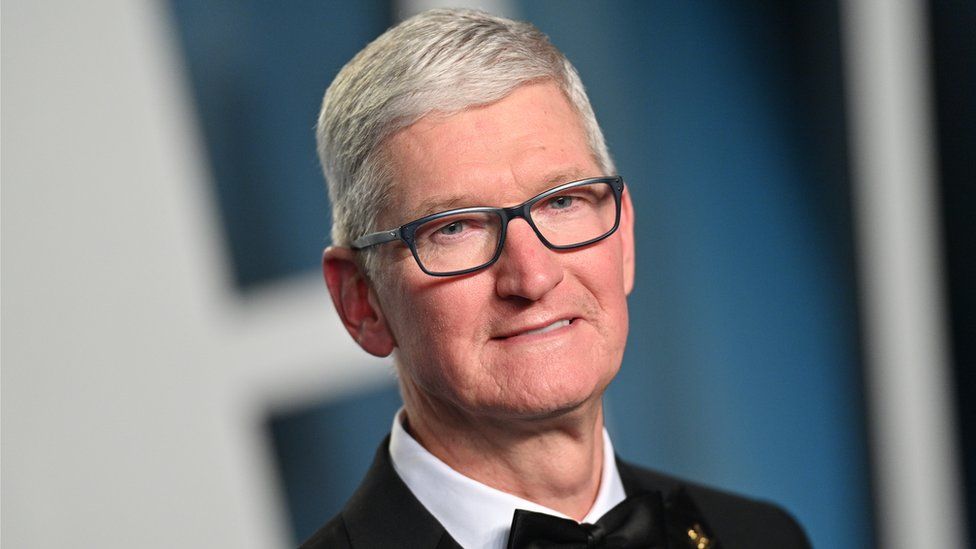- Introduction
- The Early Years: Tim Cook’s Background
- Transition to Apple: Cook’s Rise in the Company
- The Post-Jobs Era: Tim Cook as CEO
- Achievements and Impact under Cook’s Leadership
- Conclusion
Introduction
Apple Inc. is a global technology giant known for its innovative and cutting-edge products like the iPhone, iPad, and MacBook. At the helm of this iconic company is Tim Cook, who has been steering Apple as its Chief Executive Officer since August 2011. In this article, we will explore Cook’s journey, his rise to CEO, and the impact he has had on Apple’s success.
The Early Years: Tim Cook’s Background
Born on November 1, 1960, in Mobile, Alabama, Timothy Donald Cook grew up with a strong work ethic and an interest in technology. He earned a Bachelor of Science degree in Industrial Engineering from Auburn University in 1982 and later completed his Master of Business Administration (MBA) at Duke University‘s Fuqua School of Business in 1988.

Cook’s career began at IBM, where he worked for 12 years as a production and procurement manager. He then moved on to become the Chief Operating Officer (COO) of the computer reseller division at Intelligent Electronics. In 1997, Cook joined Compaq as Vice President of Corporate Materials, where he was responsible for procuring and managing product inventory.
Transition to Apple: Cook’s Rise in the Company
In 1998, Cook made a life-changing decision to join Apple, which was struggling at the time. He was recruited by Steve Jobs, Apple’s co-founder, and then-CEO, to help turn the company around. Cook’s primary responsibility was to streamline Apple’s operations and improve its supply chain management.
Cook’s work at Apple quickly yielded positive results. He reduced inventory levels, closed inefficient factories, and outsourced manufacturing to improve efficiency. In 2005, Cook was promoted to COO, and in 2007, he played a pivotal role in the launch of the first iPhone – a product that would revolutionize the mobile industry.
The Post-Jobs Era: Tim Cook as CEO
In August 2011, Steve Jobs resigned as CEO due to health issues, and Tim Cook was chosen as his successor. Cook faced the enormous challenge of filling Jobs’ shoes and leading Apple in a post-Jobs era.

Despite initial skepticism, Cook has proven to be a capable and forward-thinking leader. He has maintained Apple’s commitment to innovation, overseeing the launch of new products like the Apple Watch, iPhone X, and AirPods. Cook has also expanded Apple’s services portfolio with offerings like Apple Music, Apple Pay, and the Apple TV+ streaming platform.
Achievements and Impact under Cook’s Leadership
Under Tim Cook’s leadership, Apple has continued to thrive and grow. Some of his notable achievements include:
- Financial growth: Apple’s market capitalization has skyrocketed since Cook took the helm, making it the world’s most valuable company.
- Expansion into new markets: Cook has overseen Apple’s expansion into China and India, which are now among the company’s largest markets.
- Environmental initiatives: Cook has prioritized sustainability and environmental responsibility, launching initiatives to reduce Apple’s carbon footprint and promote recycling.
- Social advocacy: Cook has used his platform to advocate for social issues such as LGBTQ+ rights, racial equality, and privacy protection.
- Workplace diversity: Under Cook’s leadership, Apple has made strides in promoting diversity and inclusion within its workforce.
Conclusion
Tim Cook’s journey from his early years in Alabama to his current position as Apple‘s Chief Executive Officer is a testament to his hard work, dedication, and vision. Despite the challenges of succeeding Steve Jobs, Cook has made a lasting impact on Apple’s success and growth. Under his leadership, Apple continues to innovate, expand into new markets, and address pressing social and environmental issues. As the world eagerly watches what Apple does next, there is no doubt that Tim Cook is a driving force behind its continued success.




